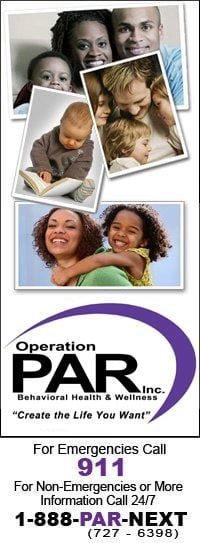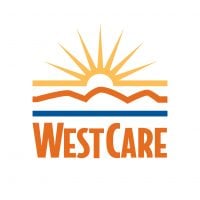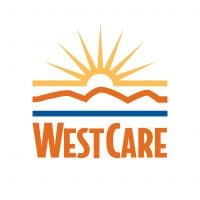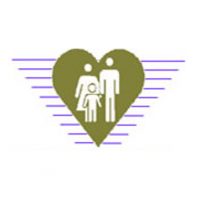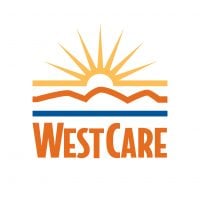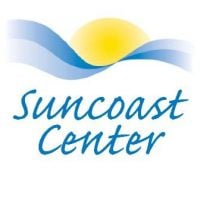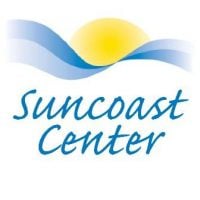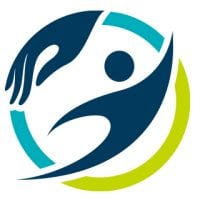Breaking Free by Faith Outreach
Drug Rehab Center in Saint Petersburg, Florida
Bravo Medical is a leading addiction treatment facility in Somerdale, NJ that provides evidence-based care and support from accredited programs, with services ranging from detoxification to interventions, accepting private insurance for individuals dealing with substance abuse, mental health issues and dual diagnosis disorders.
Multiple patients have reported Breaking Free by Faith Outreach as permanently closed.
Research other rehabs in Saint Petersburg, Florida, or get help finding an open facility.
About Breaking Free by Faith Outreach in Florida
Breaking Free by Faith Outreach is an addiction treatment facility located in Saint Petersburg, Florida. This center specializes in providing effective treatment for individuals suffering from various forms of addiction, including alcoholism, drug addiction, opioid addiction, and substance abuse. Breaking Free by Faith Outreach offers a range of levels of care, including drug rehab, dual-diagnosis treatment, inpatient programs, sober-living or halfway houses, and residential treatment. Their facility is dedicated to helping individuals on their journey to sobriety by providing comprehensive and compassionate treatment options.
At Breaking Free by Faith Outreach, individuals can expect to receive a multitude of services and treatment methods tailored to their specific needs. The center takes a holistic approach to addiction recovery, addressing not only the physical aspect of the addiction but also the emotional and spiritual components. They provide evidence-based therapies such as cognitive-behavioral therapy (CBT) and dialectical behavior therapy (DBT) to help individuals develop healthy coping mechanisms and overcome underlying issues that contribute to their addiction. Additionally, Breaking Free by Faith Outreach offers dual-diagnosis treatment for individuals dealing with co-occurring mental health disorders alongside their addiction. Their residential programs provide a supportive and structured environment for individuals to focus on their recovery while receiving 24/7 care from a team of experienced professionals. Overall, Breaking Free by Faith Outreach is dedicated to helping individuals break free from addiction and live a fulfilling life in recovery.
Genders
Ages
Modality
Additional
Conditions and Issues Treated
Rehabilitation, Medication, and Therapy – a combination of all three is most effective.
The most successful treatments for drug dependence or abuse have been those that include education and counseling and medication such as methadone or buprenorphine. The right drug abuse treatments need counseling, psychotherapy, and detoxification or medications to help with withdrawal symptoms.
Substance abuse can take many different forms, including the overuse or misuse of prescription drugs, unprescribed drugs, alcohol addiction, and drug addiction.
A combination of treatments is often needed to treat drug abuse issues effectively. In the case of drug abuse, there is no easy answer or one-size-fits-all cure.
While some drug addictions can be treated with counseling and support groups, many drug abusers also need medication to help them overcome their addiction. In other cases, drug abuse can lead to a medical problem and require medical treatment.
Treatment for drug addiction typically combines counseling and psychotherapy with medication and behavioral therapies. In some rare cases, hospitalization may also be required. All different treatments combined are the best way to help someone addicted to drugs, alcohol, or other substances.
Treatment for opioid addiction is best made with the help of medical professionals who are experienced in dealing with these types of drugs. This treatment can involve medications, exercise, behavioral therapy, and counseling sessions. It is important to note that the effectiveness of treatments for opioid addiction vary, so it is vital to research which treatment options are suitable for each individual.
Many people who struggle with opioid addiction need to attend specific programs like methadone , Suboxone or Vivitrol clinics.
These types of programs will provide the patient with legal, prescription medications that can help them overcome their cravings for illegal opioids like heroin or fentanyl . If the patient has a chronic condition like Hepatitis C, they must undergo treatment before they can begin taking these medications.
Individuals who are addicted to drugs and/or alcohol often have one or more co-occurring mental health disorders. Addressing both the addiction and the mental health problems at facilities like Breaking Free by Faith Outreach can be very beneficial for these individuals.
Common mental health conditions that often co-occur with addiction include:
- Anxiety Disorders – People with drug and alcohol problems often suffer from anxiety disorders such as panic disorder, obsessive-compulsive disorder, social anxiety disorder, and generalized anxiety disorder.
- Depression – One of the most common mental illnesses co-occurring with addiction is major depressive disorder.
- Attention-deficit hyperactivity disorder (ADHD) – Many people with drug and alcohol problems also suffer from ADHD.
- Bipolar Disorder – People with bipolar disorder are more likely to suffer from drug and alcohol problems than the general population, and vice versa.
Levels of Care Offered
This center offers a variety of custom treatment tailored to individual recovery. Currently available are Drug Rehab, Dual-Diagnosis, Inpatient, Residential, Sober-Living / Half-Way, with additional therapies available as listed below.
Inpatient recovery offers individual therapy, groups, and family therapy. The length of inpatient addiction treatment depends on the addict and their addiction. Inpatient rehab is a costly drug treatment, costing anywhere from $30k- to $60k. However, insurance often offers help in covering these costs.
Sober living homes are transitional houses for recovering addicts who need more structure than they would receive in an aftercare program. Specific rules and regulations are enforced in these homes, which are beneficial for people who need a greater degree of structure than other types of treatment.
Sober living home options include:
- Live-in managers – might be beneficial to people who do not have a support system in place at home, or who experience high levels of stress between work and home life.
- House managers – House managers are beneficial for people who do not have a strong social network to rely on, or who are concerned about relapse in their daily lives.
- House parents – House parents are beneficial to people who reside in areas without a strong aftercare program for support.
Residential treatment programs are those that offer housing and meals in addition to substance abuse treatment. Rehab facilities that offer residential treatment allow patients to focus solely on recovery, in an environment totally separate from their lives. Some rehab centers specialize in short-term residential treatment (a few days to a week or two), while others solely provide treatment on a long-term basis (several weeks to months). Some offer both, and tailor treatment to the patient’s individual requirements.
Therapies & Programs
Trauma therapy is a clinical process that helps individuals deal with mental stress often caused by traumatic events. The therapist helps the person identify, understand and work through the problem. This is done with the help of talking about it in group or one-on-one counseling sessions.
Therapists use relaxation, role-playing, art, and music to help the person open up about what is bothering them. Some examples include:
- Talking about the traumatic event and how it affected them.
- Helping those who have PTSD to deal with their nightmares and recurring memories.
- Working with individuals to resolve the issues triggering the stress, whether seeing someone who reminds them of what happened or feeling helpless.
The individual is also encouraged to help others that are struggling with similar problems. This often helps them feel empowered and gives them hope.
Trauma therapy is not for everyone; it is usually reserved for people who have recently experienced a traumatic event and struggle to get over it. It is generally done for children, teenage victims of sexual assault, and war veterans.
Payment Options Accepted
For specific insurance or payment methods please contact us.
Additional Details
Specifics, location, and helpful extra information.
Saint Petersburg, Florida 33712 Phone Number(727) 687-9518 Meta DetailsUpdated November 25, 2023
Staff Verified
Breaking Free by Faith Outreach Patient Reviews
There are no reviews yet. Be the first one to write one.
Saint Petersburg, Florida Addiction Information
Florida is one of the nation's epicenters for substance abuse and drug-related overdoses. In 2014, around 410,000 Florida residents were addicted to drugs and alcohol. Over the last 10 years, 12% of all deaths in the state were attributed to substance abuse. Treatment admissions for alcohol reached 24,329 patients in 2016, and 2.5% of Florida high school students admitted to using crack cocaine.
In Saint Petersburg, Florida, 15% of the population has substance abuse problems. That translates to 1 out of every 7 people struggling with addiction. The age group most at risk for developing an addiction are young adults aged 18-25. Drugs are responsible for many crimes in Saint Petersburg, and they are also a major factor in accidents and health problems.
Treatment in Nearby Cities
- Deerfield Beach, FL (186.2 mi.)
- Clermont, FL (77.1 mi.)
- Punta Gorda, FL (68.2 mi.)
- Palm Beach, FL (176.7 mi.)
- Sebastian, FL (133.9 mi.)
Centers near Breaking Free by Faith Outreach
The facility name, logo and brand are the property and registered trademarks of Breaking Free by Faith Outreach, and are being used for identification and informational purposes only. Use of these names, logos and brands shall not imply endorsement. RehabNow.org is not affiliated with or sponsored by Breaking Free by Faith Outreach.

